As long as people have been alive, they’ve wanted to stay alive. For centuries, explorers have searched for the fountain of youth. And today, scientists are hard at work researching technology that can extend the human lifespan, stop or reverse aging; and even preserve a terminally ill person indefinitely, until a cure for their disease is discovered. But what if — instead of preserving our *bodies* — we could preserve our *consciousness*; by uploading it to a powerful computer. This is called *mind uploading*. And one startup has developed a procedure to do exactly this. It’s scientifically sound, there’s a waiting list to participate, and the procedure — is one hundred percent fatal. Let’s find out why.〰
🙏 SUPPORT THE WHY FILES
🙏 https://www.patreon.com/thewhyfiles (Fun, Free Perks!)👽 BUY WHY FILES MERCH
👽 https://shop.thewhyfiles.com (Code: LIZZIDPEEPLE for 10% off first order)💬 CHAT WITH US ON DISCORD
💬 https://thewhyfiles.com/discord〰
🌐 OFFICIAL WEB SITE: https://thewhyfiles.com🕵️ Submit a topic, suggestion or just say hi:
🕵️ https://thewhyfiles.com/tips🎨 Have a product suggestion or want to design artwork for TWF?
🎨 https://thewhyfiles.com/merch📸 BE A WHY FILES MODEL (and get free stuff!)
📸 Send a photo of you/family/friends watching TWF.
📸 wearing TWF gear, using TWF merchandise:
📸 https://thewhyfiles.com/wild〰
🎧 THE PODCAST VERSION
🎧 https://thewhyfiles.com/podcast〰
⁍ TWF on SOCIAL (in order of importance)
⁍ https://www.reddit.com/r/TheWhyFiles/
⁍ https://twitter.com/OMGTheWhyFiles.
⁍ https://www.instagram.com/OMGTheWhyFiles.
⁍ https://www.tiktok.com/@thewhyfiles.
⁍ https://www.facebook.com/OMGTheWhyFiles〰
🐠 BETTER CHANNELS TO WATCH:
🐠 https://www.youtube.com/c/HecklefishMoriarty.
🤓 https://www.youtube.com/c/TheWhyFilesBackstage.
#science #future #technology
Get the latest international news and world events from around the world.
CRISPR’s Next Advance Is Bigger Than You Think
You’ve probably heard of CRISPR, the revolutionary technology that allows us to edit the DNA in living organisms. Biochemist and 2023 Audacious Project grantee Jennifer Doudna earned the Nobel Prize for her groundbreaking work in this field — and now she’s here to tell us about its next world-changing advancement. She explains how her team at the Innovative Genomics Institute is pioneering a brand new field of science — precision microbiome editing — that uses CRISPR in an effort to solve seemingly insurmountable problems like asthma, Alzheimer’s and climate change.
This ambitious idea is part of the Audacious Project, TED’s initiative to inspire and fund global change.
If you love watching TED Talks like this one, become a TED Member to support our mission of spreading ideas: https://ted.com/membership.
Follow TED!
Twitter: https://twitter.com/TEDTalks.
Instagram: https://www.instagram.com/ted.
Facebook: https://facebook.com/TED
LinkedIn: https://www.linkedin.com/company/ted-conferences.
TikTok: https://www.tiktok.com/@tedtoks.
The TED Talks channel features talks, performances and original series from the world’s leading thinkers and doers. Subscribe to our channel for videos on Technology, Entertainment and Design — plus science, business, global issues, the arts and more. Visit https://TED.com to get our entire library of TED Talks, transcripts, translations, personalized talk recommendations and more.
Watch more: https://go.ted.com/jenniferdoudna.
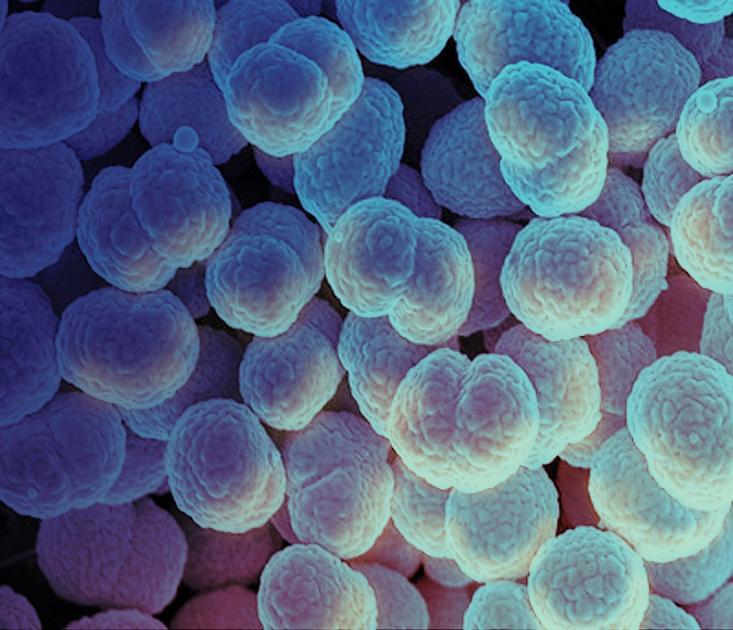
NIH Statement on Preliminary Efficacy Results of First-in-Class Gonorrhea Antibiotic Developed Through Public-Private Partnership
A study by the Global Antibiotic Research & Development Partnership and Innoviva Specialty Therapeutics found a single dose of a first-in-class oral antibiotic called zoliflodacin was as safe and effective as standard therapy for uncomplicated urogenital gonorrhea. NIAID contributed financial and scientific support to the development of zoliflodacin and applauds its non-governmental and private sector partners on successfully conducting the study. Read the NIH statement on these results: https://go.nih.gov/Wquuct
A single dose of a novel oral antibiotic called zoliflodacin has been found to be as safe and effective as standard therapy for uncomplicated urogenital gonorrhea in an international Phase 3 non-inferiority clinical trial, according to the Global Antibiotic Research & Development Partnership (GARDP), the study sponsor. Gonorrhea treatment options are increasingly limited due to antimicrobial resistance seen in Neisseria gonorrhoeae, the bacteria that cause gonococcal infection.
Because of the imperative to expand the gonococcal therapeutic pipeline, the National Institute of Allergy and Infectious Diseases (NIAID), part of the National Institutes of Health, has contributed financial and scientific support to the development of zoliflodacin and applauds its non-governmental and private sector partners on successfully conducting the Phase 3 study. This research has generated important new evidence for a field in urgent need of alternative therapeutic options. Specifically, zoliflodacin may offer an alternative to current therapy for uncomplicated urogenital gonococcal infection.
“Decades-old antibiotics are becoming ineffective for treating Neisseria gonorrhoeae, which creates a huge global health burden. NIAID celebrates this exemplary public-private partnership for supporting science to improve the sexual health of people worldwide,” said NIAID Director Jeanne Marrazzo, M.D. “These encouraging results should bolster additional, intersectoral efforts to develop safe and effective therapeutic options for gonorrhea and other bacteria that exhibit antimicrobial resistance.”
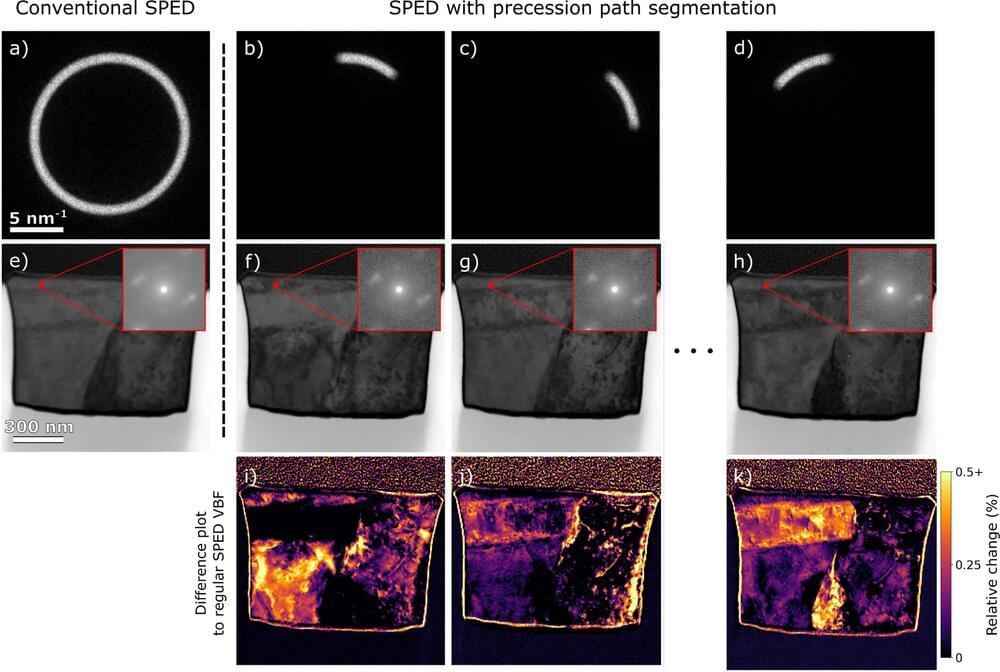
Solving a long-standing problem in transmission electron microscopy
For researchers wanting to understand the inner workings of magnetic materials, transmission electron microscopy is an indispensable tool. Because the wavelength of an electron is much shorter than the wavelength of visible light, a beam of electrons transmitted through a thin slice of a material can create an image in which the inner structure of the material is magnified up to 50 million times, many orders of magnitude more than with an optical microscope.
Since transmission electron microscopy, or TEM, was first developed in the 1930s, scientists and engineers have come up with many variations on the technique. Each of these variations suit different applications and come with their own advantages and disadvantages.
Now, researchers at NTNU have come up with a remarkably simple method to solve a long-standing problem in an almost 30-year-old TEM-based technique known as scanning precession electron diffraction, or SPED.
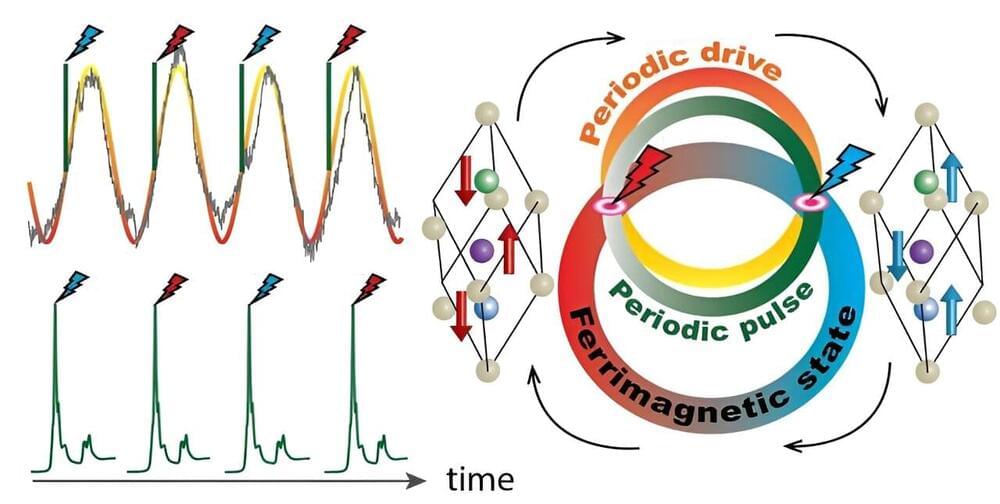
Strange magnetic material could make computing energy-efficient
A research collaboration co-led by EPFL has uncovered a surprising magnetic property of an exotic material that might lead to computers that need less than one-millionth of the energy required to switch a single bit.
The world of materials science is constantly discovering or fabricating materials with exotic properties. Among them are the multiferroics, a unique class of materials that can be both magnetized and polarized at the same time, which means that they are sensitive to both magnetic and electric fields.
Having both these properties in a single material has made multiferroics very interesting for research and commercial purposes with potential applications from advanced electronics to next-generation memory storage. By understanding and harnessing the properties of multiferroics, researchers aim to develop more efficient, compact, and even energy-saving technologies.
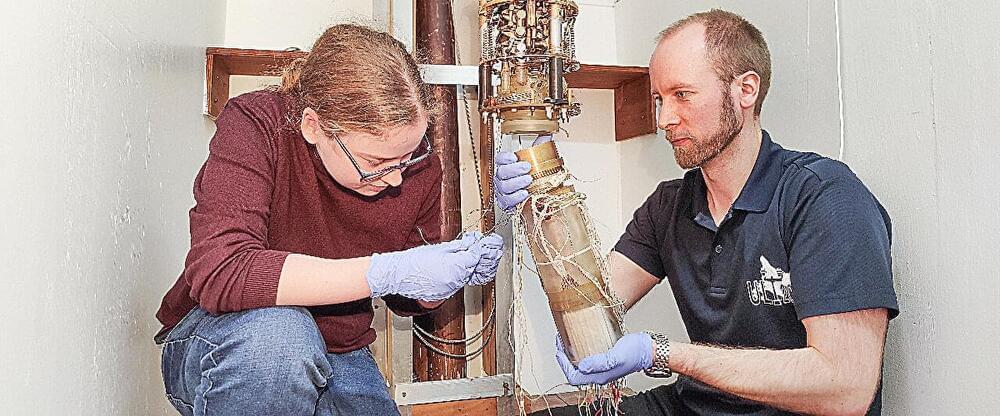
What a ‘2D’ quantum superfluid feels like to the touch
Researchers from Lancaster University in the UK have discovered how superfluid helium 3 He would feel if you could put your hand into it. Dr. Samuli Autti is the lead author of the research published in Nature Communications.
The interface between the exotic world of quantum physics and classical physics of the human experience is one of the major open problems in modern physics.
Dr. Autti said, In practical terms, we don’t know the answer to the question ‘How does it feel to touch quantum physics?’ These experimental conditions are extreme and the techniques complicated, but I can now tell you how it would feel if you could put your hand into this quantum system.
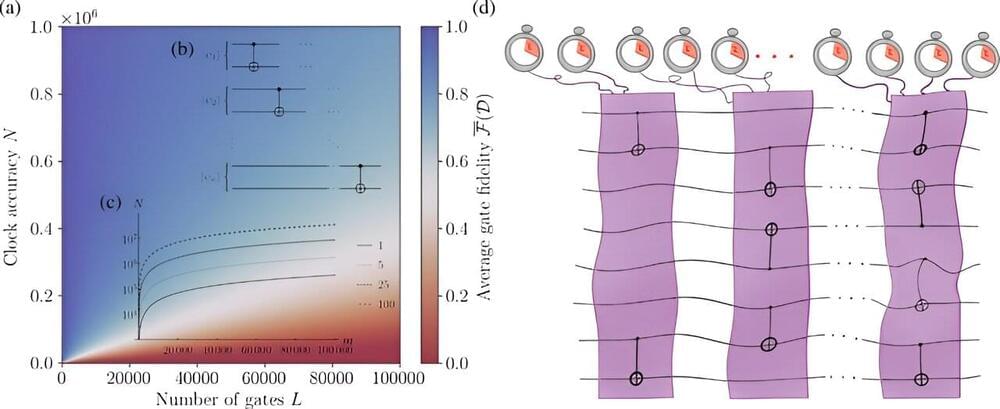
Late not great—imperfect timekeeping places significant limit on quantum computers
New research from a consortium of quantum physicists, led by Trinity College Dublin’s Dr. Mark Mitchison, shows that imperfect timekeeping places a fundamental limit to quantum computers and their applications. The team claims that even tiny timing errors add up to place a significant impact on any large-scale algorithm, posing another problem that must eventually be solved if quantum computers are to fulfill the lofty aspirations that society has for them.
The paper is published in the journal Physical Review Letters.
It is difficult to imagine modern life without clocks to help organize our daily schedules; with a digital clock in every person’s smartphone or watch, we take precise timekeeping for granted—although that doesn’t stop people from being late.
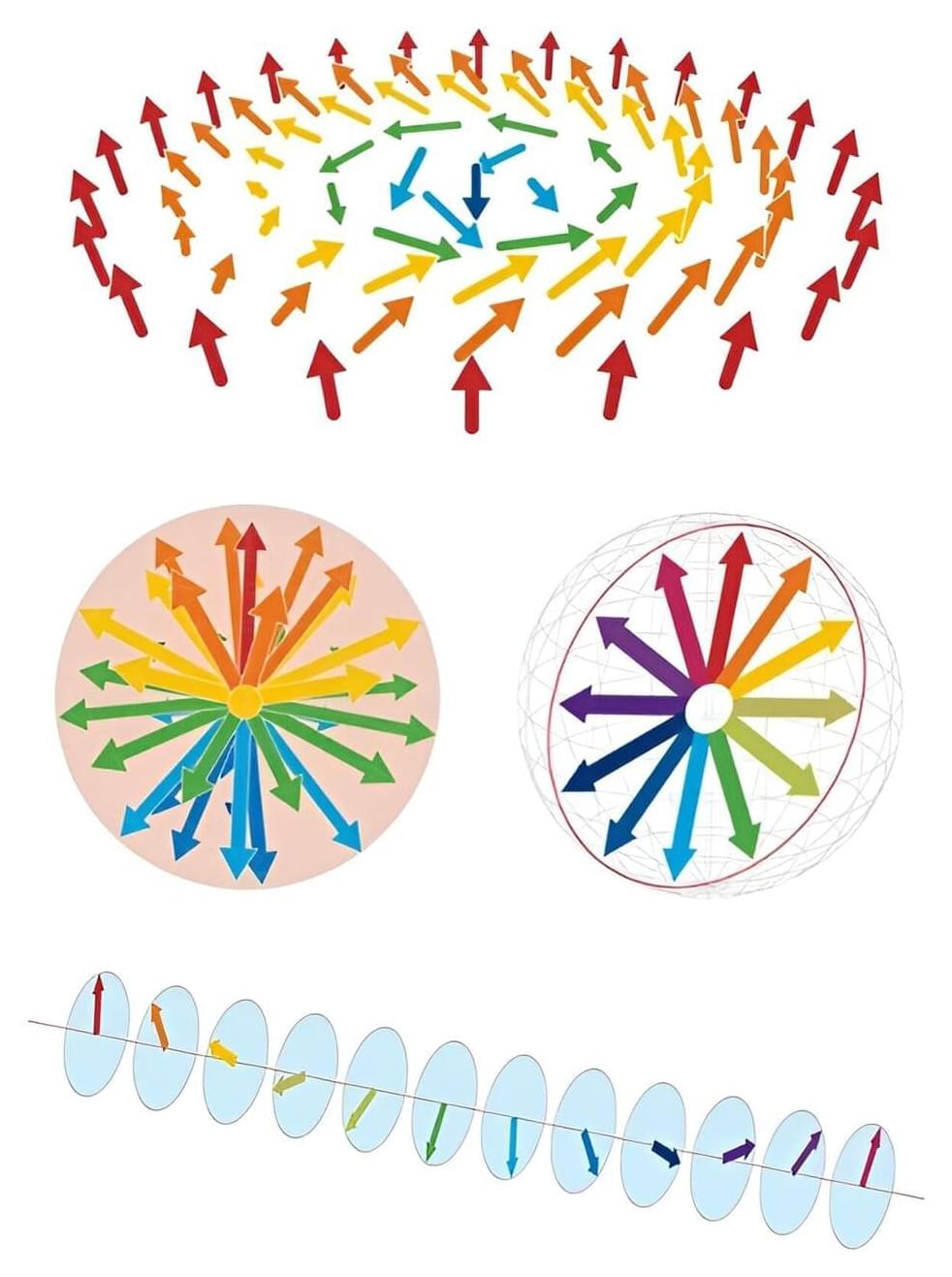
Simulating spins, spirals and shrinking devices for new classes of energy-efficient materials
The diamond in an engagement ring, the wonder-material graphene and the lead in a humble pencil are all formed from carbon, but display profoundly different characteristics. Carbon materials such as these are among the most famous examples of how diverse properties can emerge in materials, based only on the rearrangement of the structure of atoms.
The goal of the RIKEN Center for Emergent Matter Science (CEMS) in Saitama, Japan, is to develop materials for new, energy-efficient technologies. The usual approach to synthesizing new materials involves looking for improved properties such as strength and durability, or enhanced conduction of electricity and heat.
But CEMS is pioneering an alternative approach that turns that standard approach on its head. First, we think of the properties needed for a new device, use data from RIKEN’s new repository and simulation platform to calculate the atomic structure that provides these features and then build the bespoke material.
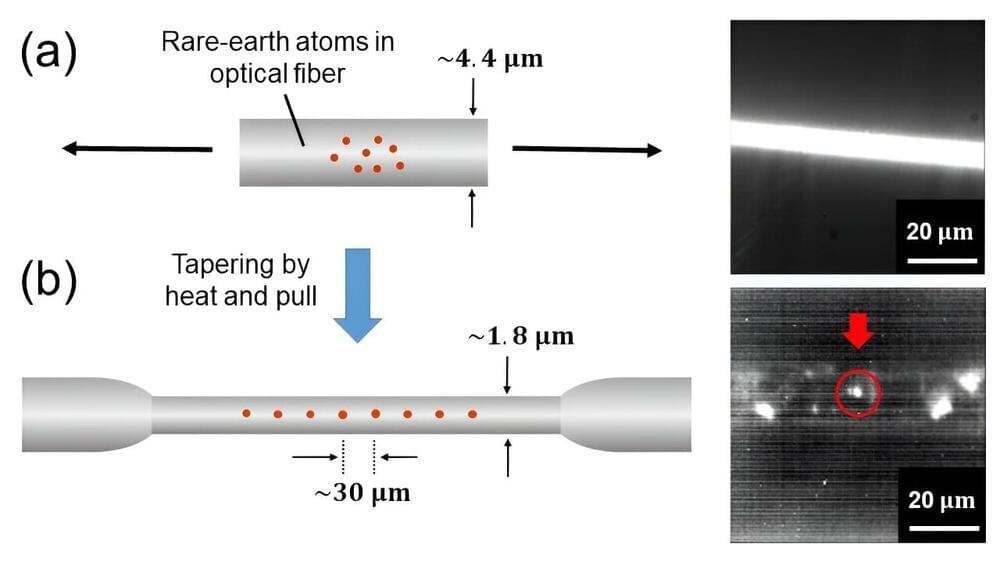
Optical fiber–based, single-photon light source at room temperature for next-generation quantum processing
Quantum-based systems promise faster computing and stronger encryption for computation and communication systems. These systems can be built on fiber networks involving interconnected nodes which consist of qubits and single-photon generators that create entangled photon pairs.
In this regard, rare-earth (RE) atoms and ions in solid-state materials are highly promising as single-photon generators. These materials are compatible with fiber networks and emit photons across a broad range of wavelengths. Due to their wide spectral range, optical fibers doped with these RE elements could find use in various applications, such as free-space telecommunication, fiber-based telecommunications, quantum random number generation, and high-resolution image analysis. However, so far, single-photon light sources have been developed using RE-doped crystalline materials at cryogenic temperatures, which limits the practical applications of quantum networks based on them.
In a study published in Physical Review Applied on 16 October 2023, a team of researchers from Japan, led by Associate Professor Kaoru Sanaka from Tokyo University of Science (TUS) has successfully developed a single-photon light source consisting of doped ytterbium ions (Yb3+) in an amorphous silica optical fiber at room temperature. This newly developed single-photon light source eliminates the need for expensive cooling systems and has the potential to make quantum networks more cost-effective and accessible.
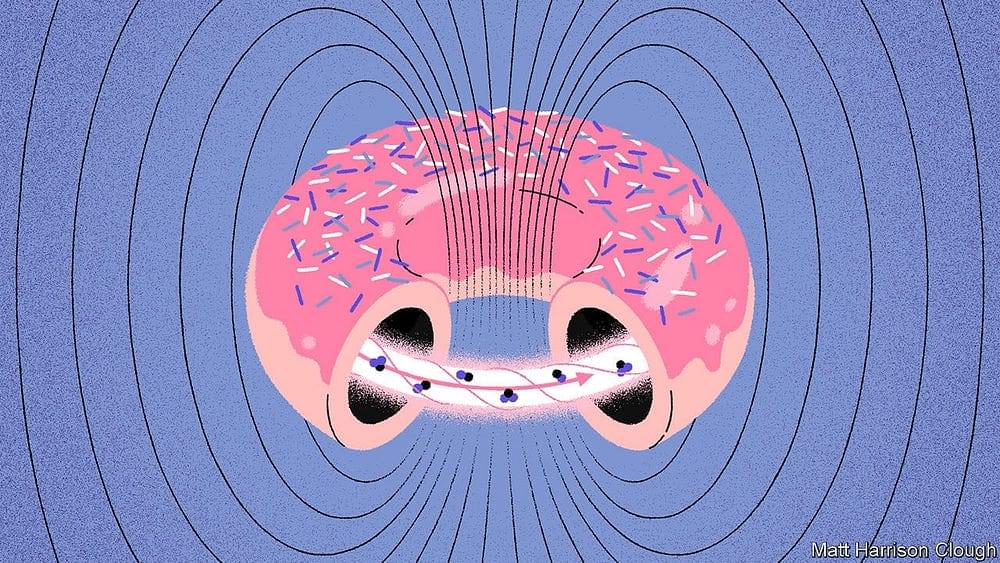
Why do fusion reactors take on a doughnut-like shape?
Nuclear fusion holds the promise to generate energy in a clean, safe, and nearly inexhaustible way. The physical idea of fusion involves confining fuels at unearthly temperatures of approximately 150,000,000 degree Celsius which fusion reactions between atomic nuclei can happen. The fuels of interest, deuterium and tritium (isotopes of hydrogen), exist in the state of plasma. Clearly, containing these extremely hot plasmas with solid walls is unfeasible.
A plasma is an ionised gas comprising charged particles, both ions and electrons. Fortunately, the dynamics of charge particles are subject to constraints along magnetic field lines. This insight forms the basis of our current approach: constructing a magnetic bottle using powerful magnetic fields that effectively trap the plasma along these intangible field lines.
One of the most iconic magnetic confinement machine designs is the tokamak — a toroidally-shaped device, often likened to a doughnut. The name ‘tokamak’ is derived from the Russian acronym for ‘to roidal cha mber with ma gnetic c oils.’